It was another Sunday morning and we had all five kids in tow. The oldest in his inquisitive preteen stage asking me questions during the whole Mass. My timid one asking me over and over again if we could move up to the balcony so that there wouldn’t be so many people around. My youngest two boys elbowing and shoving each other because they both wanted to sit next to mommy. And my baby girl getting on and off laps, pulling hymnals in and out of the holders and wandering in and out of the pew.
Most often it feels like a train wreck. A constant refereeing of little ones just to keep them quiet so they won’t disturb those around us. Constantly reminding them to pay attention and listen because these are the greatest moments they will be living all week, something far greater than video games or Avenger movies.
But every once in a while, someone behind us gives us a compliment. “What a beautiful family you have!” “Your kids are so well-behaved.” “Well done on keeping the peace.” or “They are all so adorable, you’re doing great.” And it’s then that I realize once again that the simple things in life mean so much.
Today is the Feast of St. Pius of Pietrelcina, usually known as Padre Pio. Although he was granted the extraordinary grace of bearing the wounds of Christ, the stigmata, he lived a very simple life. He began by saying Mass at 5am and then spent most of the day hearing confessions. Although he was very sought after, he did not fall into pride or seek public attention. In fact, he rarely left the friary.
In today’s Gospel, Jesus uses a simple image to describe how we can bear fruit, by planting seed in rich soil. We all have a basic concept of how gardening works. The more a seed is watered and fertilized and receives sunlight, the better it grows. The same is true for our hearts. The more it is nourished to become receptive to God’s word, the more fruit it bears within us.
So let us not discount the simple things in life. Let us learn from them and take them in and truly allow ourselves to be transformed by them, so that we too may bear much fruit.
Era otro domingo por la mañana y traimos a los cinco hijos con nosotros. El mayor en su etapa inquisitiva de preadolescente haciéndome preguntas durante toda la Misa. Mi hijo tímido preguntándome una y otra vez si podíamos subir al balcón para que no hubiera tanta gente a su alrededor. Mis dos hijos menores se daban codazos y empujones porque ambos querían sentarse al lado de su mamá. Y mi niña pequeña subiendo y bajando de nuestras piernas, sacando y poniendo himnarios de los soportes y entrando y saliendo del banco.
La mayoría de las veces se siente como un choque de trenes. Un constante arbitraje de los más pequeños para que se queden callados y no molesten a los que nos rodean. Recordándoles constantemente que presten atención y escuchen porque estos son los mejores momentos que vivirán durante toda la semana, algo mucho más grande que los videojuegos o las películas de los Avengers.
Pero de vez en cuando, alguien detrás de nosotros nos hace un cumplido. “¡Qué hermosa familia tienes!” “Tus hijos se portan muy bien”. “Bien hecho por mantener la paz”. o “Son todos tan adorables, lo estás haciendo muy bien”. Y es entonces cuando me doy cuenta una vez más de que las cosas simples de la vida significan mucho.
Hoy es la fiesta de San Pío de Pietrelcina, generalmente conocido como Padre Pío. Aunque se le concedió la gracia extraordinaria de llevar las heridas de Cristo, los estigmas, vivió una vida muy sencilla. Comenzaba celebrando Misa a las 5 am y luego pasaba la mayor parte del día escuchando confesiones. Aunque era muy buscado, no caía en el orgullo ni buscaba la atención del público. De hecho, rara vez salía del convento.
En el Evangelio de hoy, Jesús utiliza una imagen sencilla para describir cómo podemos dar fruto, plantando semillas en tierra fértil. Todos tenemos un concepto básico de cómo funciona la jardinería. Mientras más se riega y fertiliza una semilla y recibe luz solar, mejor crece. Lo mismo es cierto para nuestros corazones. Mientras más se nutre para volverse receptivo a la palabra de Dios, más fruto da dentro de nosotros.
Así que no descartemos las cosas sencillas de la vida. Aprendamos de ellos, asumámoslos y dejémonos verdaderamente transformar por ellos, para que también nosotros podamos dar mucho fruto.
Feature Image Credit: Brigitte Tohm, unsplash.com/photos/EAay7Aj4jbc
 Tami Urcia grew up in Western Michigan, a middle child in a large Catholic family. She spent early young adulthood as a missionary in Mexico, studying theology and philosophy, then worked and traveled extensively before finishing her Bachelor’s Degree in Western Kentucky. She loves tackling projects, finding fun ways to keep her little ones occupied, quiet conversation with the hubby and finding unique ways to love. She works full time, is a guest blogger on CatholicMom.com and BlessedIsShe.net, and has been doing Spanish translations on the side for over 20 years.
Tami Urcia grew up in Western Michigan, a middle child in a large Catholic family. She spent early young adulthood as a missionary in Mexico, studying theology and philosophy, then worked and traveled extensively before finishing her Bachelor’s Degree in Western Kentucky. She loves tackling projects, finding fun ways to keep her little ones occupied, quiet conversation with the hubby and finding unique ways to love. She works full time, is a guest blogger on CatholicMom.com and BlessedIsShe.net, and has been doing Spanish translations on the side for over 20 years.

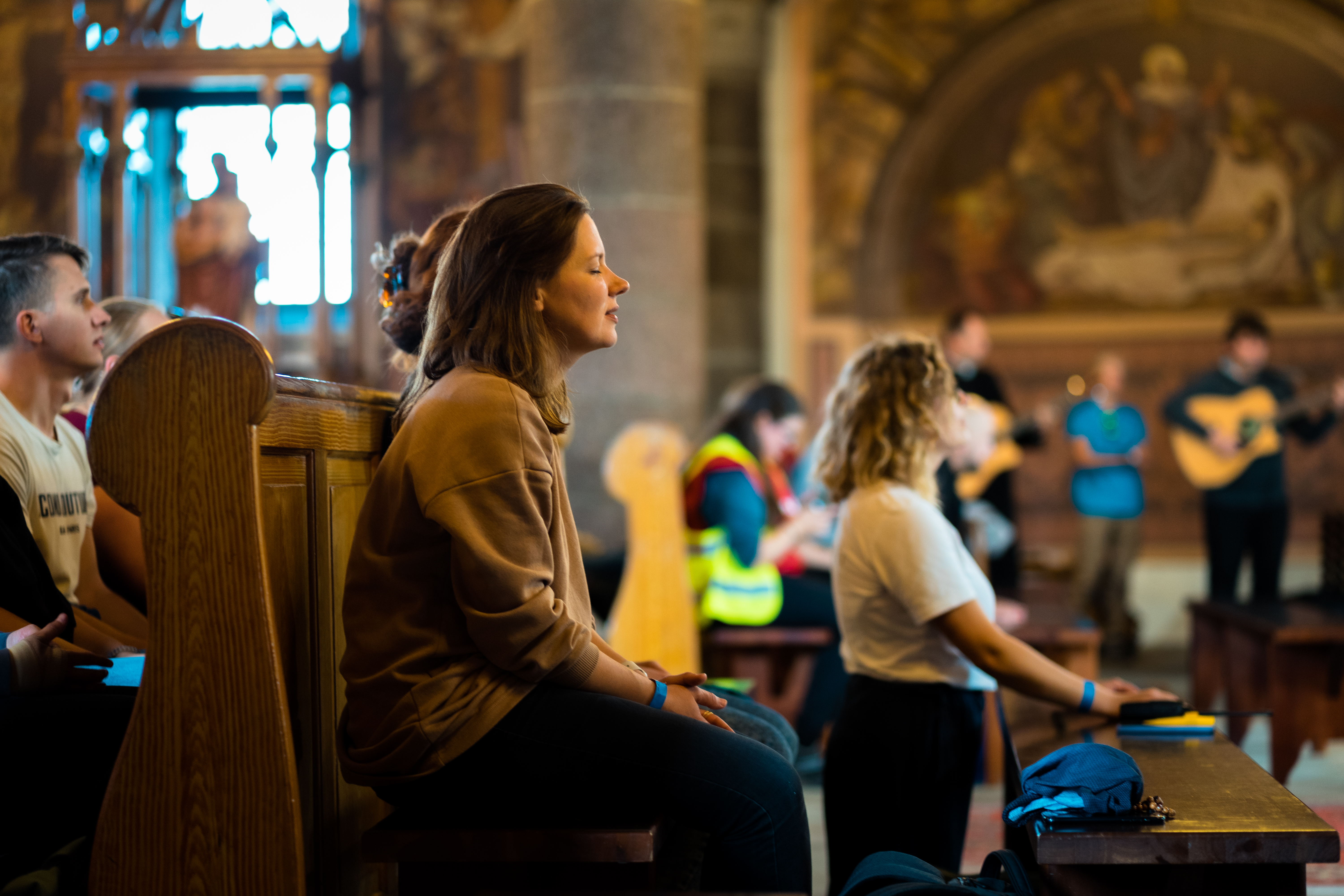
 Allison Gingras (
Allison Gingras ( 


 Kathryn Mulderink, MA, is married to Robert, Station Manager for Holy Family Radio. Together they have seven children (including Father Rob), and seven grandchildren. She is President of the local community of Secular Discalced Carmelites and has published five books and many articles. Over the last 30 years, she has worked as a teacher, headmistress, catechist, Pastoral Associate, and DRE, and as a writer and voice talent for Catholic Radio. Currently, she serves the Church by writing and speaking, and by collaborating with various parishes and to lead others to encounter Christ and engage their faith. Her website is
Kathryn Mulderink, MA, is married to Robert, Station Manager for Holy Family Radio. Together they have seven children (including Father Rob), and seven grandchildren. She is President of the local community of Secular Discalced Carmelites and has published five books and many articles. Over the last 30 years, she has worked as a teacher, headmistress, catechist, Pastoral Associate, and DRE, and as a writer and voice talent for Catholic Radio. Currently, she serves the Church by writing and speaking, and by collaborating with various parishes and to lead others to encounter Christ and engage their faith. Her website is 
 A lover of Jesus Christ, a wife, and a mother of five, Christine is the author of Everyday Heroism: 28 Daily Reflections on the Little Way of Motherhood. She is a graduate of Franciscan University, an instructor for the Institute for Excellence in Writing, and an experienced catechist. Thrilled to have recently become grandparents, she and her husband currently live in Upstate, NY. Visit her author webpage at
A lover of Jesus Christ, a wife, and a mother of five, Christine is the author of Everyday Heroism: 28 Daily Reflections on the Little Way of Motherhood. She is a graduate of Franciscan University, an instructor for the Institute for Excellence in Writing, and an experienced catechist. Thrilled to have recently become grandparents, she and her husband currently live in Upstate, NY. Visit her author webpage at 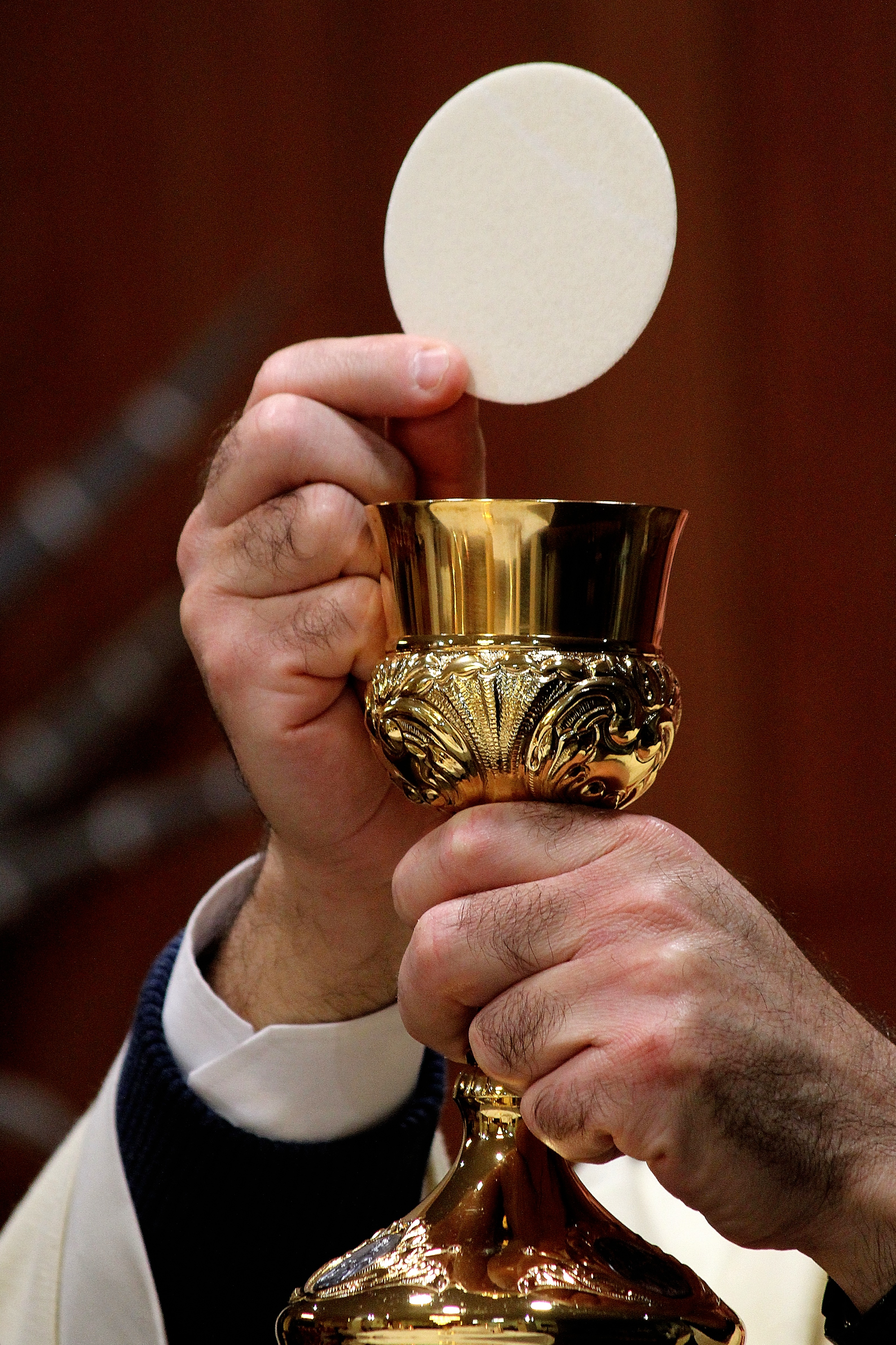
 Mike Karpus is a regular guy. He grew up in Michigan’s Upper Peninsula, graduated from Michigan State University and works as an editor. He is married to a Catholic school principal, raised two daughters who became Catholic school teachers at points in their careers, and now relishes his two grandchildren, including the older one who is fascinated with learning about his faith. He also has served on a Catholic school board, a pastoral council and a parish stewardship committee. He currently is a lector at Mass, a Knight of Columbus, Adult Faith Formation Committee member and a board member of the local Habitat for Humanity organization. But mostly he’s a regular guy.
Mike Karpus is a regular guy. He grew up in Michigan’s Upper Peninsula, graduated from Michigan State University and works as an editor. He is married to a Catholic school principal, raised two daughters who became Catholic school teachers at points in their careers, and now relishes his two grandchildren, including the older one who is fascinated with learning about his faith. He also has served on a Catholic school board, a pastoral council and a parish stewardship committee. He currently is a lector at Mass, a Knight of Columbus, Adult Faith Formation Committee member and a board member of the local Habitat for Humanity organization. But mostly he’s a regular guy.
 Merridith Frediani loves words and is delighted by good sentences. She also loves Lake Michigan, dahlias, the first sip of hot coffee in the morning, millennials, and playing Sheepshead with her husband and three kids. She writes for Catholic Mom, Diocesan.com, and her local Catholic Herald. Her first book Draw Close to Jesus: A Woman’s Guide to Adoration is available at Our Sunday Visitor and Amazon. You can learn more at
Merridith Frediani loves words and is delighted by good sentences. She also loves Lake Michigan, dahlias, the first sip of hot coffee in the morning, millennials, and playing Sheepshead with her husband and three kids. She writes for Catholic Mom, Diocesan.com, and her local Catholic Herald. Her first book Draw Close to Jesus: A Woman’s Guide to Adoration is available at Our Sunday Visitor and Amazon. You can learn more at 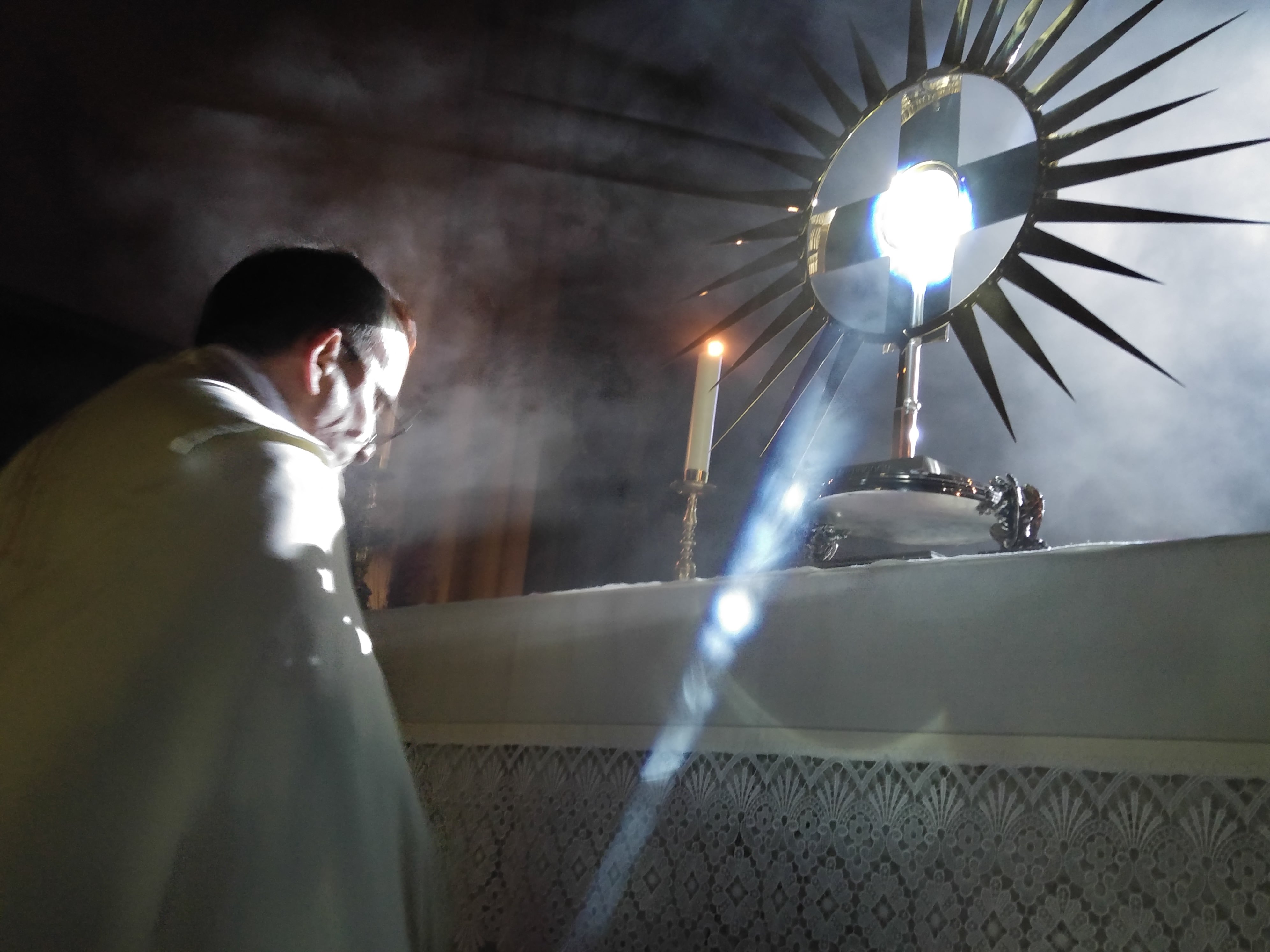
 David Dashiell is a freelance author and editor in Nashville, Tennessee. He has a master’s degree in theology from Franciscan University, and is the editor of the anthology
David Dashiell is a freelance author and editor in Nashville, Tennessee. He has a master’s degree in theology from Franciscan University, and is the editor of the anthology 

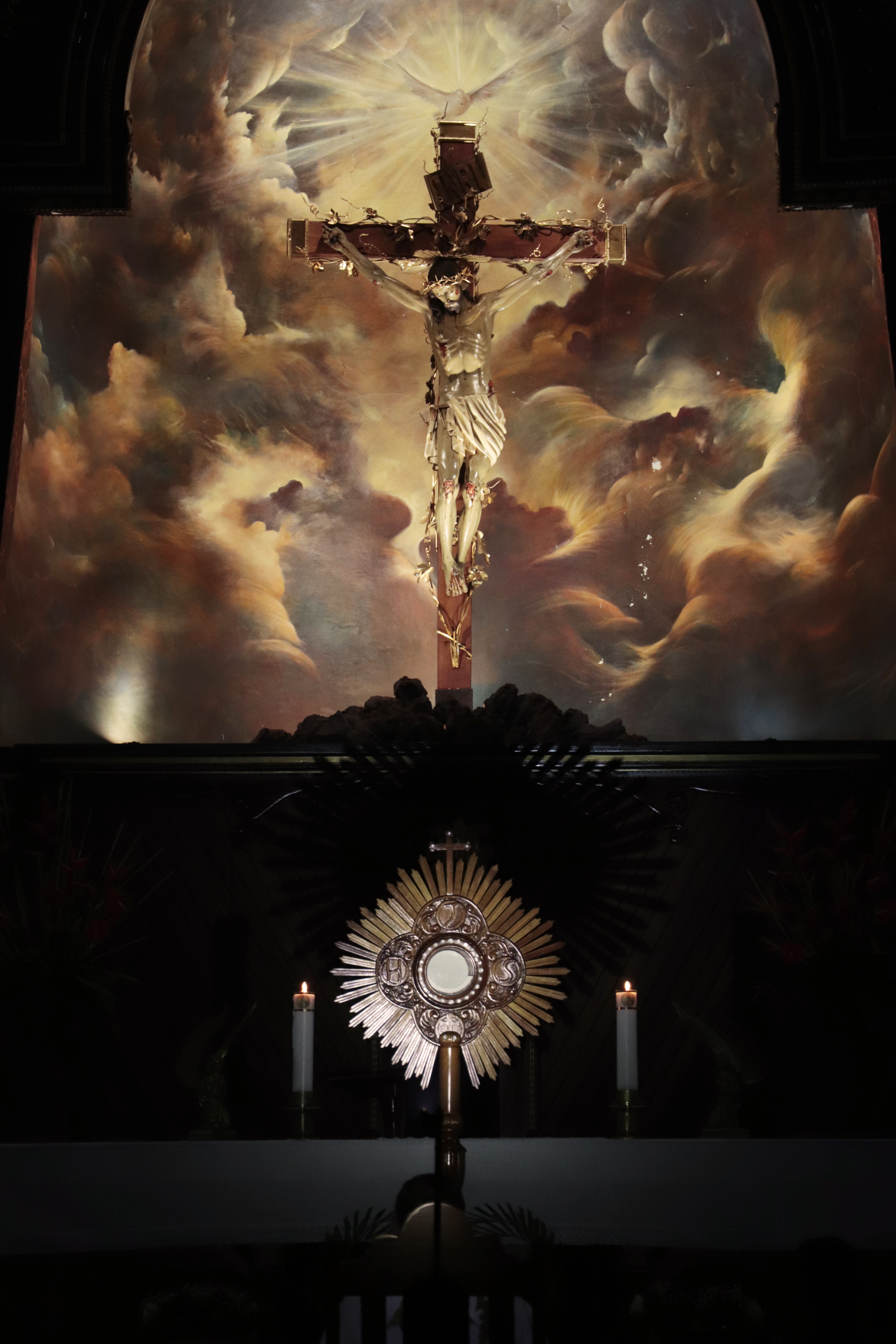

 J.M. Pallas has had a lifelong love of Scriptures. When she is not busy with her vocation as a wife and mother to her “1 Samuel 1” son, or her vocation as a public health educator, you may find her at her parish women’s bible study, affectionately known as “The Bible Chicks.”
J.M. Pallas has had a lifelong love of Scriptures. When she is not busy with her vocation as a wife and mother to her “1 Samuel 1” son, or her vocation as a public health educator, you may find her at her parish women’s bible study, affectionately known as “The Bible Chicks.”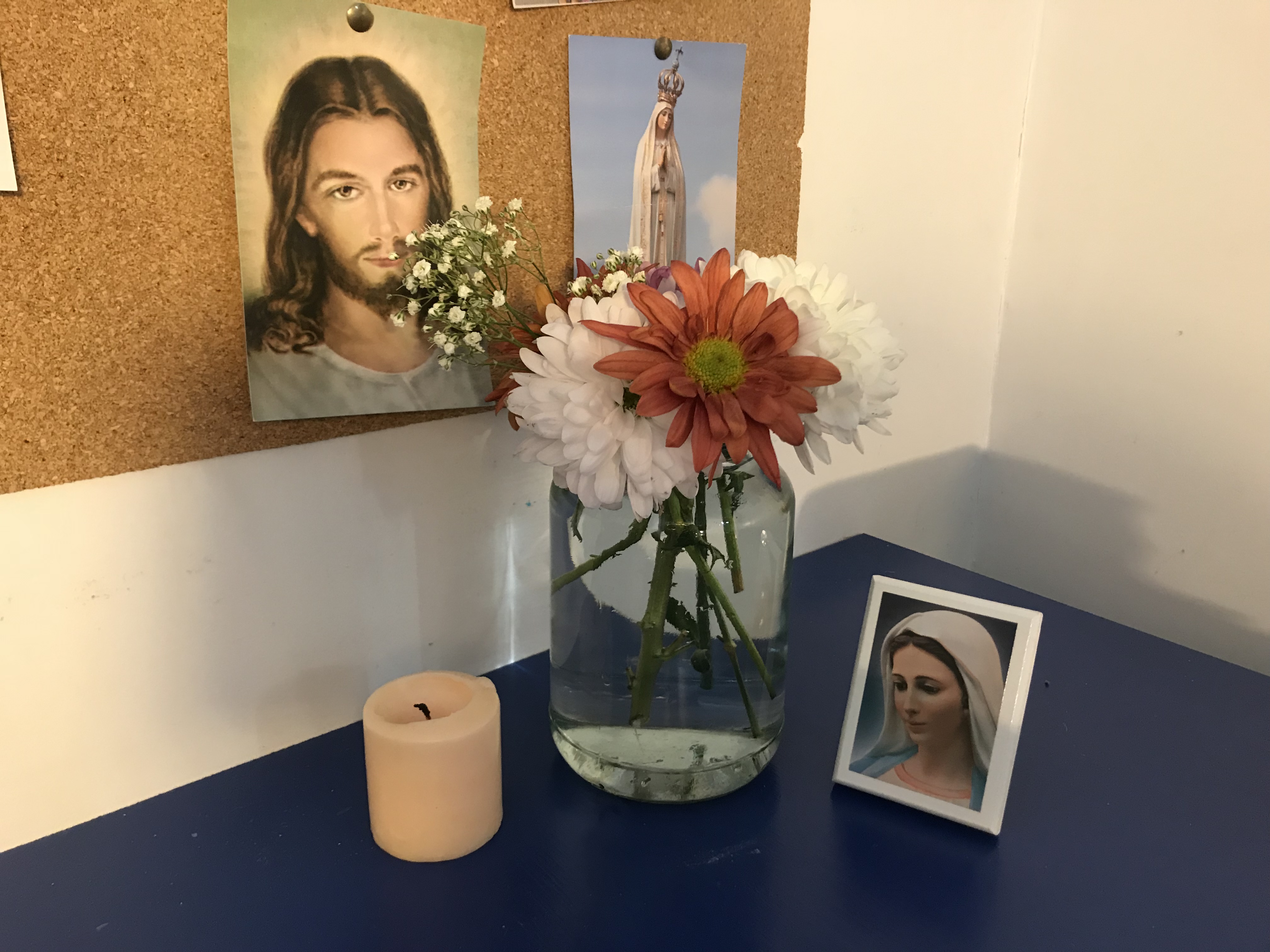
 Sheryl is happy to be the number 1 cheerleader and supporter for her husband, Tom who is a candidate for the Permanent Diaconate in the Diocese of Kalamazoo. They are so grateful for the opportunity to grow together in this process. Sheryl’s day job is serving her community as the principal for St. Therese Catholic School in Wayland, Michigan. Since every time she thinks she gets life all figured out, she realizes just how far she has to go, St. Rita of Cascia is her go-to Saint for intercession and help. Home includes Carlyn, a very, very goofy Golden Retriever and Lucy, our not-so-little rescue puppy.
Sheryl is happy to be the number 1 cheerleader and supporter for her husband, Tom who is a candidate for the Permanent Diaconate in the Diocese of Kalamazoo. They are so grateful for the opportunity to grow together in this process. Sheryl’s day job is serving her community as the principal for St. Therese Catholic School in Wayland, Michigan. Since every time she thinks she gets life all figured out, she realizes just how far she has to go, St. Rita of Cascia is her go-to Saint for intercession and help. Home includes Carlyn, a very, very goofy Golden Retriever and Lucy, our not-so-little rescue puppy. 